Input interpretation

cis-stilbene
Chemical names and formulas
![formula | C_6H_5CH=CHC_6H_5 Hill formula | C_14H_12 name | cis-stilbene IUPAC name | [(Z)-2-phenylvinyl]benzene alternate names | benzene, 1, 1'-(1, 2-ethenediyl)bis-, (Z) | benzene, 1, 1'-(1, 2-ethenediyl)bis-, (Z)- | cis-1, 2-diphenylethylene | isostilbene | [(Z)-2-phenylethenyl]benzene | [(Z)-2-phenylvinyl]benzene | (Z)-stilbene mass fractions | C (carbon) 93.3% | H (hydrogen) 6.71%](../image_source/0c0a57df47b28f40406f4474b19918af.png)
formula | C_6H_5CH=CHC_6H_5 Hill formula | C_14H_12 name | cis-stilbene IUPAC name | [(Z)-2-phenylvinyl]benzene alternate names | benzene, 1, 1'-(1, 2-ethenediyl)bis-, (Z) | benzene, 1, 1'-(1, 2-ethenediyl)bis-, (Z)- | cis-1, 2-diphenylethylene | isostilbene | [(Z)-2-phenylethenyl]benzene | [(Z)-2-phenylvinyl]benzene | (Z)-stilbene mass fractions | C (carbon) 93.3% | H (hydrogen) 6.71%
Lewis structure
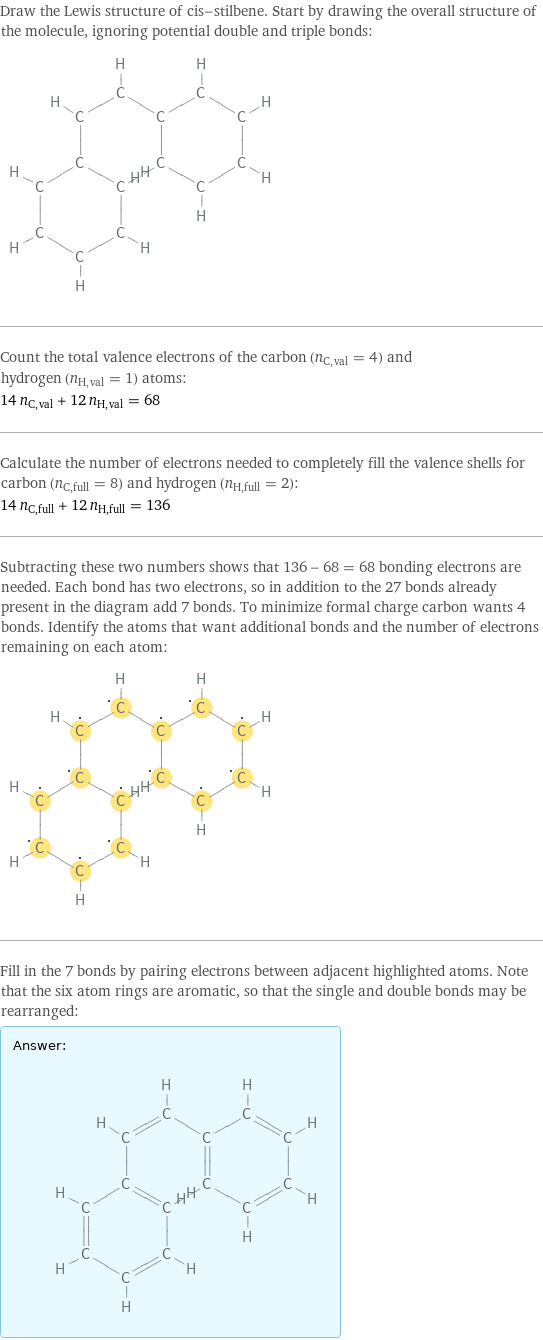
Draw the Lewis structure of cis-stilbene. Start by drawing the overall structure of the molecule, ignoring potential double and triple bonds: Count the total valence electrons of the carbon (n_C, val = 4) and hydrogen (n_H, val = 1) atoms: 14 n_C, val + 12 n_H, val = 68 Calculate the number of electrons needed to completely fill the valence shells for carbon (n_C, full = 8) and hydrogen (n_H, full = 2): 14 n_C, full + 12 n_H, full = 136 Subtracting these two numbers shows that 136 - 68 = 68 bonding electrons are needed. Each bond has two electrons, so in addition to the 27 bonds already present in the diagram add 7 bonds. To minimize formal charge carbon wants 4 bonds. Identify the atoms that want additional bonds and the number of electrons remaining on each atom: Fill in the 7 bonds by pairing electrons between adjacent highlighted atoms. Note that the six atom rings are aromatic, so that the single and double bonds may be rearranged: Answer: | |
3D structure
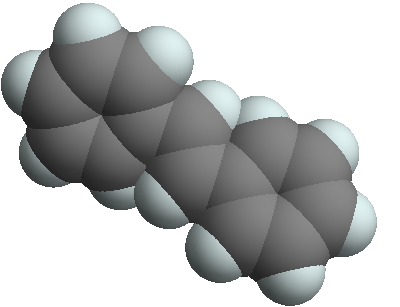
3D structure
Basic properties
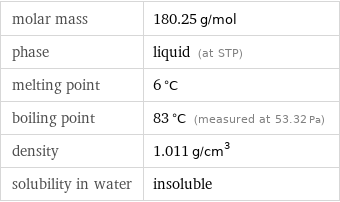
molar mass | 180.25 g/mol phase | liquid (at STP) melting point | 6 °C boiling point | 83 °C (measured at 53.32 Pa) density | 1.011 g/cm^3 solubility in water | insoluble
Units

Liquid properties (at STP)
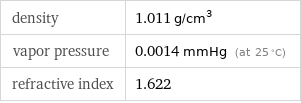
density | 1.011 g/cm^3 vapor pressure | 0.0014 mmHg (at 25 °C) refractive index | 1.622
Units

Thermodynamic properties
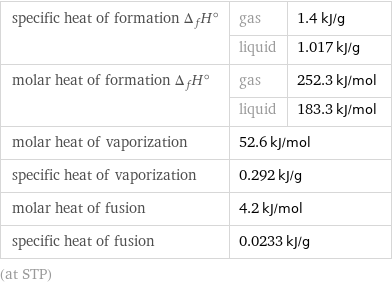
specific heat of formation Δ_fH° | gas | 1.4 kJ/g | liquid | 1.017 kJ/g molar heat of formation Δ_fH° | gas | 252.3 kJ/mol | liquid | 183.3 kJ/mol molar heat of vaporization | 52.6 kJ/mol | specific heat of vaporization | 0.292 kJ/g | molar heat of fusion | 4.2 kJ/mol | specific heat of fusion | 0.0233 kJ/g | (at STP)
Chemical identifiers
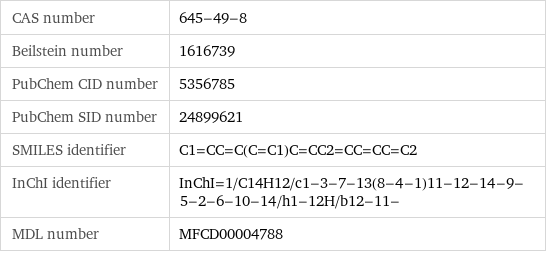
CAS number | 645-49-8 Beilstein number | 1616739 PubChem CID number | 5356785 PubChem SID number | 24899621 SMILES identifier | C1=CC=C(C=C1)C=CC2=CC=CC=C2 InChI identifier | InChI=1/C14H12/c1-3-7-13(8-4-1)11-12-14-9-5-2-6-10-14/h1-12H/b12-11- MDL number | MFCD00004788
Safety properties

flash point | 110 °C lower explosive limit | 0.7% (concentration in air) upper explosive limit | 4.3% (concentration in air)

DOT hazard class | 3 DOT numbers | 3295